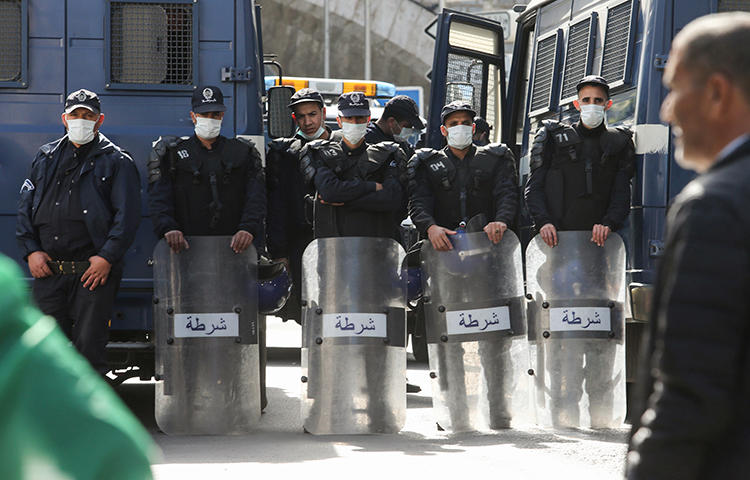Three additional local news websites have been blocked on Algerian networks since April 22, 2020, bringing the number of outlets affected in April and May to at least six, according to online statements by the websites affected. The intervention came in the wake of a new law against “false news.”
On May 13, the privately-owned news website L’Avant-Garde said that Algerian readers were unable to access their reporting. On May 11, online news outlet Le Matin d’Algérie released a statement saying that the website had been inaccessible for several days; local news website DZvid separately reported online that since April 22 their website has only been available using virtual private network (VPN) software to bypass local censorship. CPJ was able to access L’Avant-Garde, Le Matin d’Algérie, and DZvid from the United States in mid-May.
All three have recently covered the COVID-19 pandemic in Algeria, as well as anti-government protests that have been taking place since February 2019, according to CPJ’s review of their reporting.
No government agency has acknowledged responsibility for the measure, according to the three statements. The Algerian Ministry of Communication did not return CPJ’s email request for comment.
Bouzid Ichalalene, founder of the Interlignes website that CPJ documented had been subject to blocking on April 19, told CPJ by messaging app in May that authorities do not generally disclose why websites are blocked or which government body is responsible.
Interlignes was blocked the same day that the Council of Ministers, headed by newly-elected President Abdelmadjid Tebboune, approved a law that criminalizes spreading false news, CPJ established at the time, while news website Maghreb Emergent and the website of its partner radio station Radiom were blocked on April 9. Journalist and local press freedom advocate Mustapha Bendjama confirmed to CPJ over messaging app that all three were still blocked in Algeria as of May 20.
All three sites that were newly affected expressed concern about the deteriorating state of press freedom, but continued to publish. L’Avant-Garde called the block an attempt to muzzle independent media, and set up an alternate web address that remains available. defended its objective reporting and said it would not be intimidated by attempts to criminalize its work.
